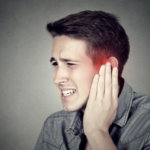
Mini strokes, also known as transient ischemic attacks (TIA), happen when a temporary decline in the supply of blood to the brain, spinal cord, or retina occurs. When the blood supply to these crucial parts of the body is interrupted, the brain cells are not damaged and permanent disability does not occur; however, they are a sign that the person who is afflicted by them is more at risk of suffering a full-on stroke.
Research has found that an estimated 1 in 3 people who suffer from mini strokes go on to experience a full stroke, a condition that causes a severe disruption in blood flow to the brain, can damage brain cells, and can be life-altering or life-threatening. The risk of a full stroke is usually the highest within 48 hours after suffering a mini stroke.
The symptoms of a mini stroke are very similar to a full stroke; therefore, it is important to seek medical care if any of these symptoms arise.
1. Paralysis of the face
A mini stroke can cause facial paralysis. This occurs when the muscles within the face become paralyzed, and as a result, the side of the face that is affected can become distorted in appearance. The eyes or mouth may droop or it may be difficult to smile, for example. Typically, only one side of the face is affected. Facial paralysis occurs when the nerves in the brain that control the muscles of the face are damaged.
The damage may be caused by a lack of oxygen to the brain, which occurs when blood flow is disrupted. It can also be the result of excess pressure in the brain pressing on the nerves that control the muscles of the face. If you find that you or someone you have has developed a distorted look in the face (the eyelid or the mouth is drooping), there is a chance that a mini stroke could be to blame.


